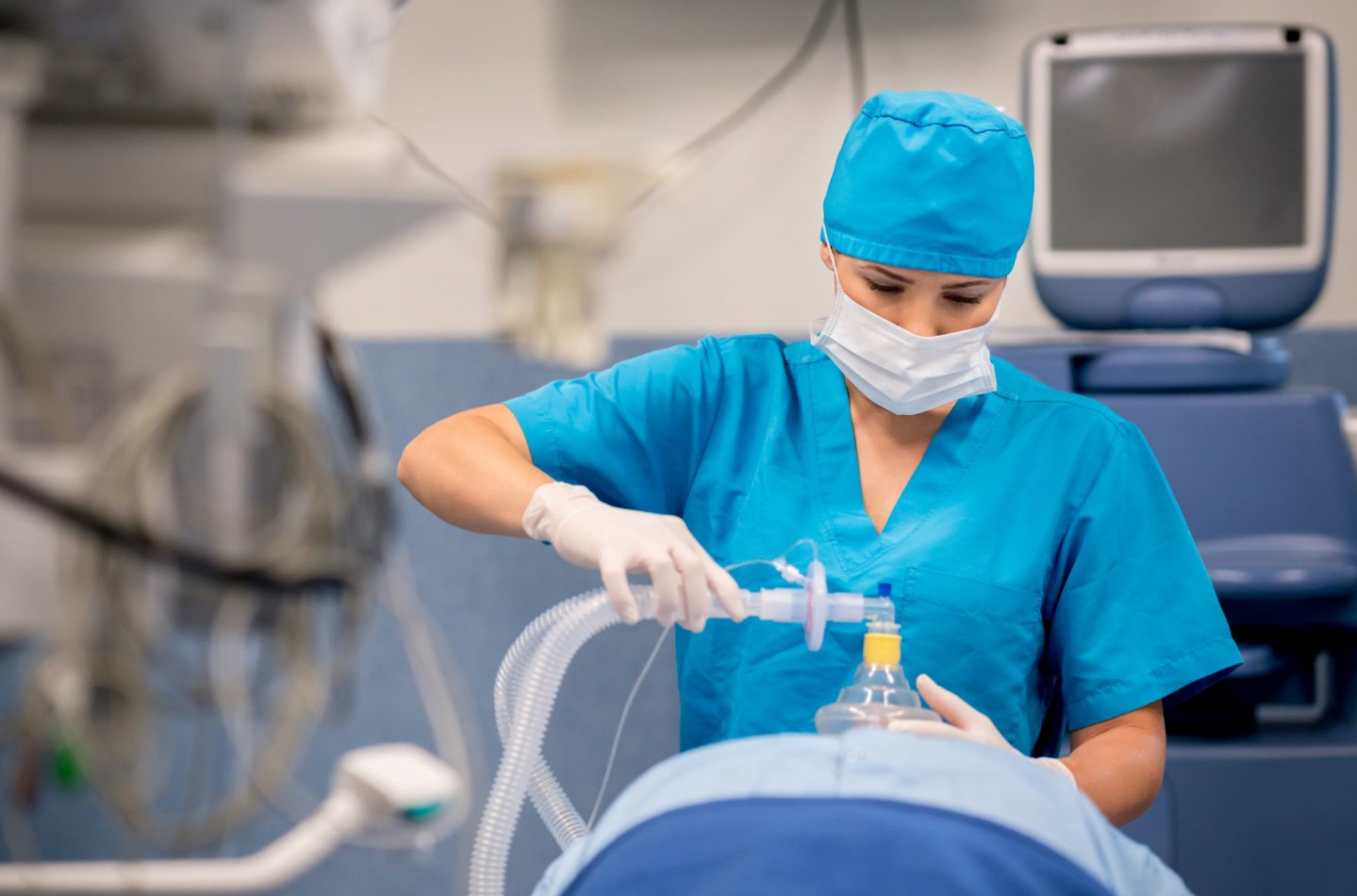Conquer the Crushing: Understanding and Managing Migraines and Headaches
JUN 19, 2025Understanding the type of headache you're experiencing is crucial for effective treatment.
Read More
If you have a surgery or procedure, you may receive the care of a Certified Registered Nurse Anesthetist (CRNA). According to the American Association of Nurse Anesthetists, CRNAs administer anesthesia safely to more than 50 million patients each year.
As a CRNA, I can assure you we play a unique and vital role in providing safe and effective anesthesia care. CRNAs collaborate with other members of your health care team while staying with you before, during and after your procedure. We pride ourselves in providing a caring, responsible, nursing-focused approach while advocating for each and every patient.
Through my tenure working at CHI Health St. Francis as a Patient Care Assistant during nursing school and my 15 years of working in the anesthesia department, I have gained valuable experience. I chose this profession because every day, I am able to care for a variety of patients and am constantly challenged. During any given day, I may interact with up to a dozen patients in multiple short cases or one to two patients if doing longer, more complex cases.
I enjoy the interaction with my patients and coworkers, the variety of cases from day to day, and dealing with the challenges and intricacies of each patient specific to their health histories and procedures.
A CRNA follows patients throughout the entire perioperative experience. We are there from beginning to the end, not just in the OR. We do everything from ordering labs and tests to making sure each patient is comfortable and ready to leave the Post Anesthesia Care Unit after their surgery is completed.
During the surgical process we place any necessary lines, administer regional anesthesia when appropriate, induce anesthesia, intubate and monitor patients so they can safely have their surgical procedure completed.
At the end of the case, we facilitate the wake up and extubation procedure, then transition to the recovery room. In recovery, we are available to the patients and their nurses for any additional assistance.
Education requirements are a Master’s of Science Degree in Nursing and a minimum of one year of actual work experience in a critical care unit. This nursing background affords us the knowledge of advanced patient care.
As with other nursing specialties, a degree in anesthesia requires several more years of training. Requirements to complete your CRNA training are approximately three more years of intense didactic and clinical experience specific to anesthesia. Coursework includes advanced training in chemistry, physics, anatomy, pharmacology and physiology. There are also many hours spent hands on while completing the clinical phase of our education.
While some programs are still Master’s-degree level, all are transitioning to a Doctorate of Nursing Practice (DNP), a doctoral-level degree for nursing professionals.
CRNAs advocate for the patient from the beginning to the end of their perioperative experience and when necessary beyond that as well. Most importantly, we advocate for the patient’s overall well-being and safety.
Sometimes labs, other tests or the review of a patient’s history will lead to cancellation or postponement of cases. It is our job to ensure the patient is a viable candidate and ready for their surgery.
Not all patients react the same way to anesthesia. We try to avoid adverse reactions when possible – always taking the patient's medical history into consideration, closely monitoring them during and after surgery and administering the medications needed. Also, we often place regional blocks to give patients a head start on their recovery process and ease some of their pain.
If you’re having a procedure, you can look to your CRNA for anesthesia expertise and a high level of care that takes your specific condition and individual needs into consideration. In short, we are here for you!

Understanding the type of headache you're experiencing is crucial for effective treatment.
Read More
Proper diet is essential in maintaining bladder and bowel health as they affect your gut microbiome.
Read More
Injuries spike during the summer months but there are actions you can take to prevent injuries during the 100 deadliest days of summer.
Read MoreWhen you need local health information from a trusted source, turn to the CHI Health Better You eNewsletter.